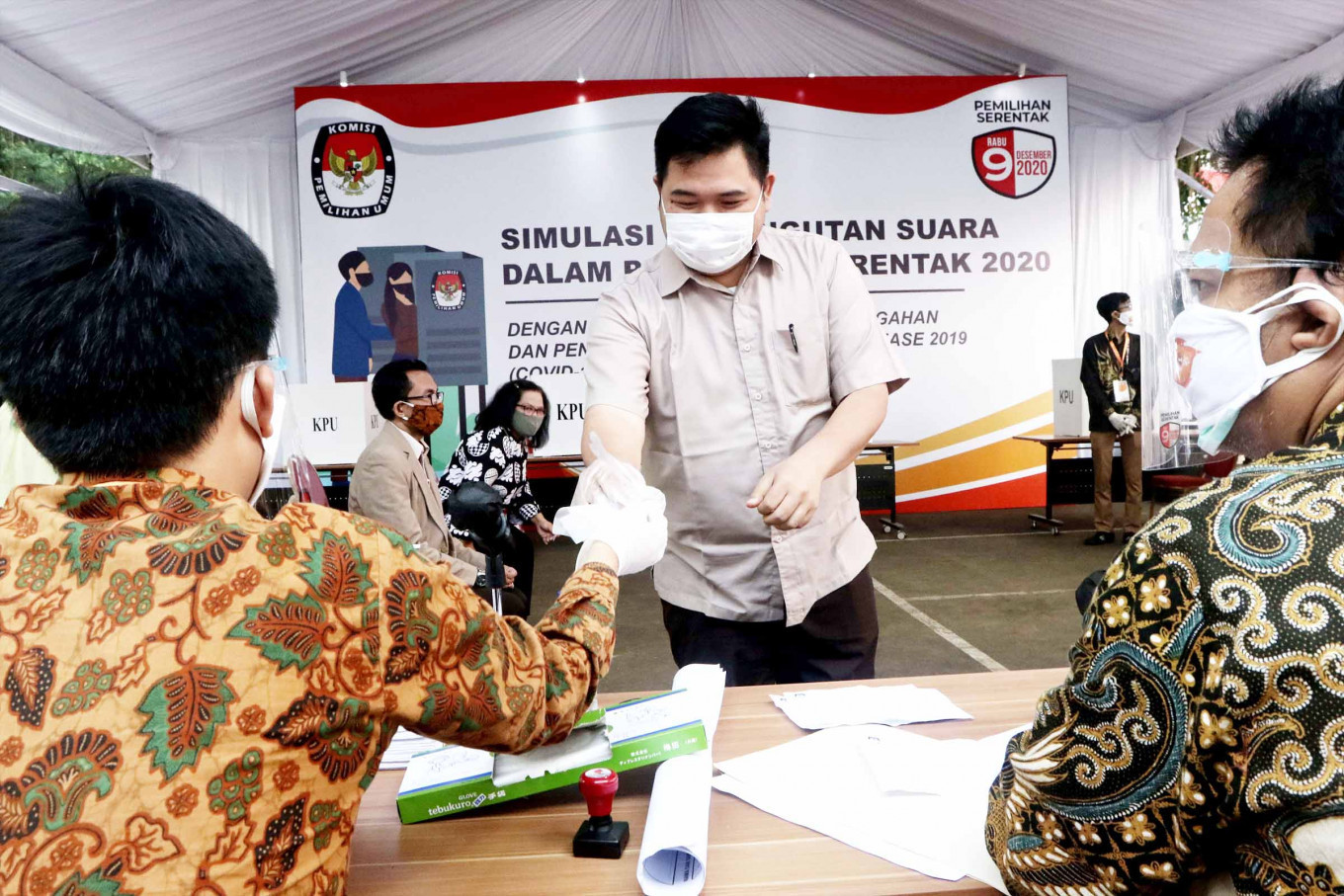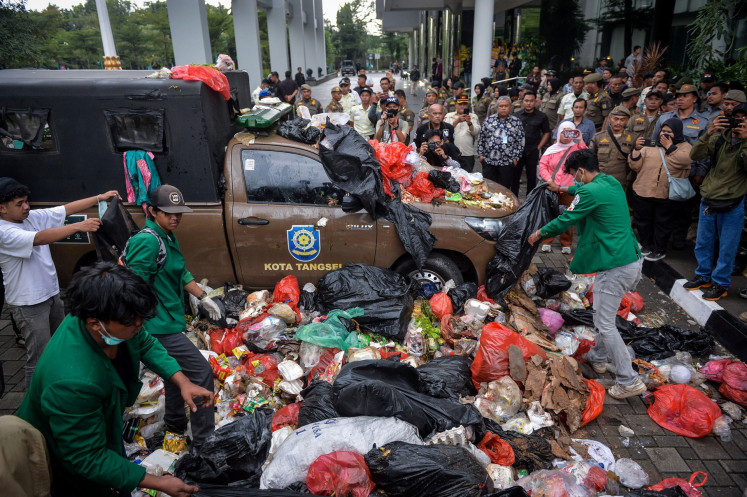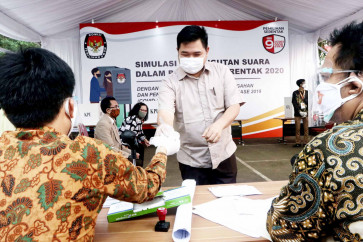Popular Reads
Top Results
Can't find what you're looking for?
View all search resultsPopular Reads
Top Results
Can't find what you're looking for?
View all search resultsAnalysis: Foreign money, shell companies allegedly fund political campaigns
Change text size
Gift Premium Articles
to Anyone

Illicit money could be finding its way into campaigns for the 2024 general election, as the Financial Transaction Reports and Analysis Center (PPATK) recently found that money from overseas had flown into the accounts of 21 unnamed political parties. Totaling Rp 195 billion (US$12.4 million), 30 percent of the funds are said to have originated from shell companies.
The PPATK said it had made its discovery following the disclosure of its report on suspicious transactions from the 2024 general election’s final candidate list (DCT) earlier this month. The center’s further findings indicated that the foreign funds or funds channeled through foreign entities or individuals were sent in 2023 to the accounts of the political parties’ treasurers before being dispersed to the parties’ executives and legislative candidates, with its total value coming in higher than in 2022 at Rp 83 billion.
While 70 percent of the million-dollar funds came from individuals, the remaining 30 percent is thought to have come from shell companies due to their addresses in tax haven countries. Other countries reportedly housing the shell companies include the United States, Singapore and the Philippines.
Taking a closer look at shell companies, there are legitimate reasons for their establishment, namely for business purposes such as holding stocks of another business entity and facilitating corporate mergers, as well as security purposes such as protecting trade secrets. However, the opaque ownership and obscure structure have too often enabled illegal activities, such as money laundering and tax evasion, and allowed wealthy individuals to hide undeclared wealth from local tax authorities.
So far, no details have been provided regarding the names of the shell companies, which political parties received the funds and how much of it was used to fund campaigns. The PPATK has only said that it was still exploring these details and had reported its findings to the Elections Supervisory Agency (Bawaslu). However, reports have stated that recipients of the funds are also recorded as shareholders of the shell companies.
Despite the lack of details about the shell companies, the PPATK also said it had a strong suspicion that the source of the foreign funds mostly originated from the wildlife trade, as well as from drug trafficking, gambling and illegal mining.

According to observers, the high cost of politics, lax regulations on campaign fund reporting and weak law enforcement are the root causes of the massive dubious transactions leading up to the 2024 general election. Subsequently, businessmen have become a primary target group as they are most likely to contribute substantial amounts of funds. These businesspeople have an interest in participating in the success of a legislative candidate for the continuity of their business.


















